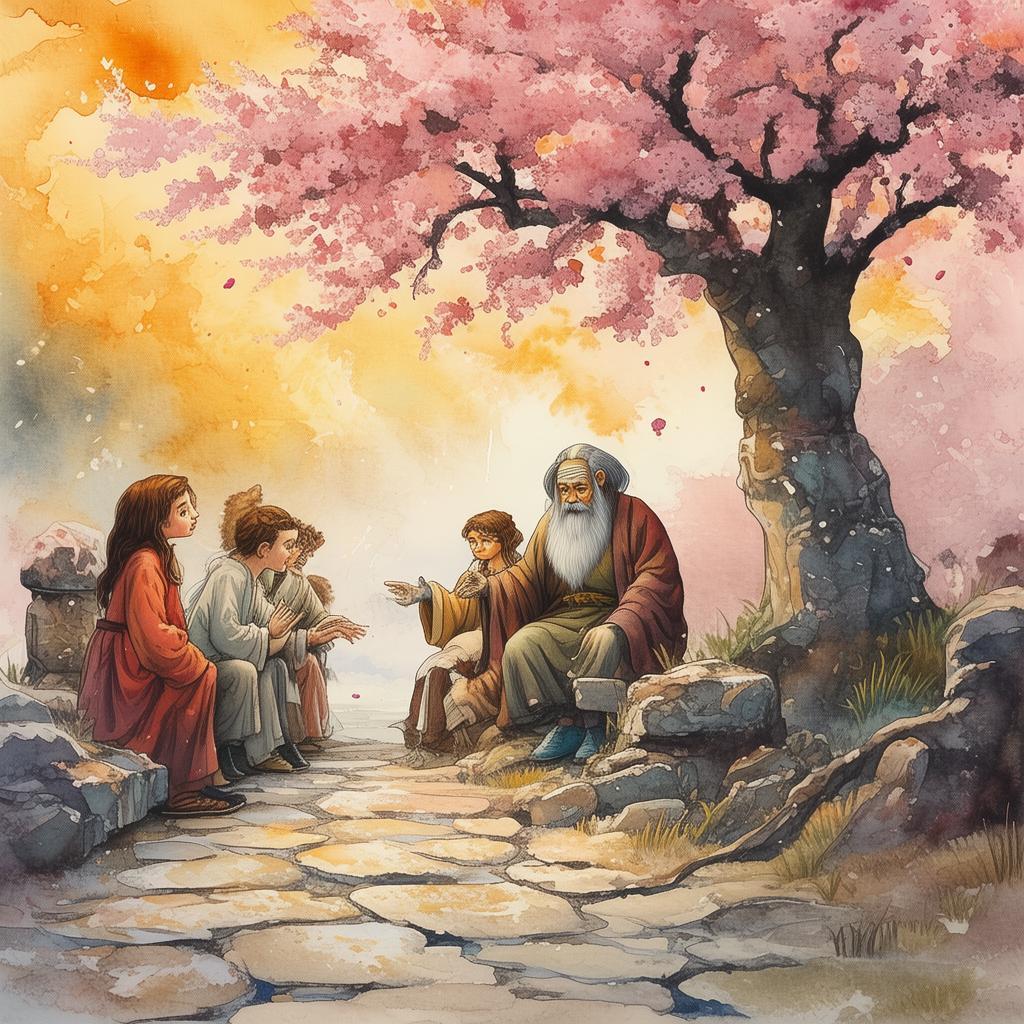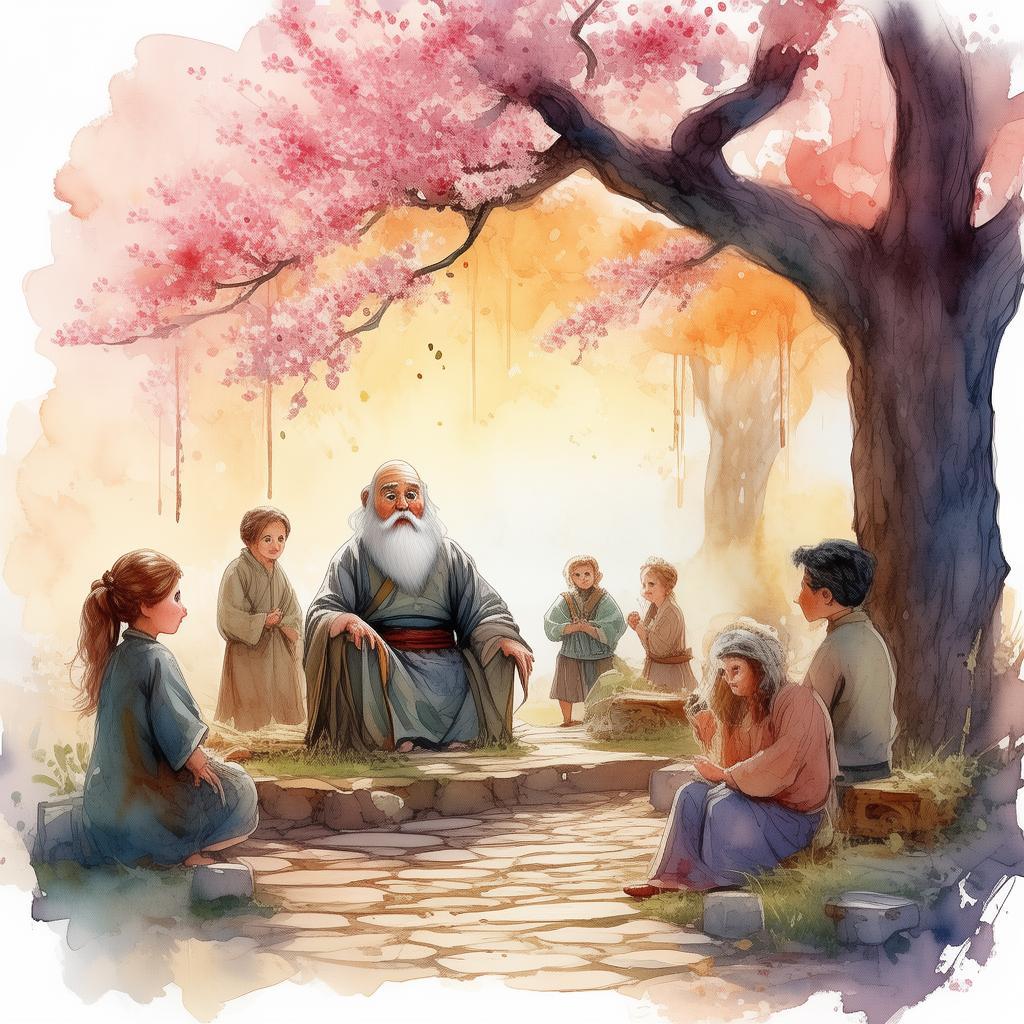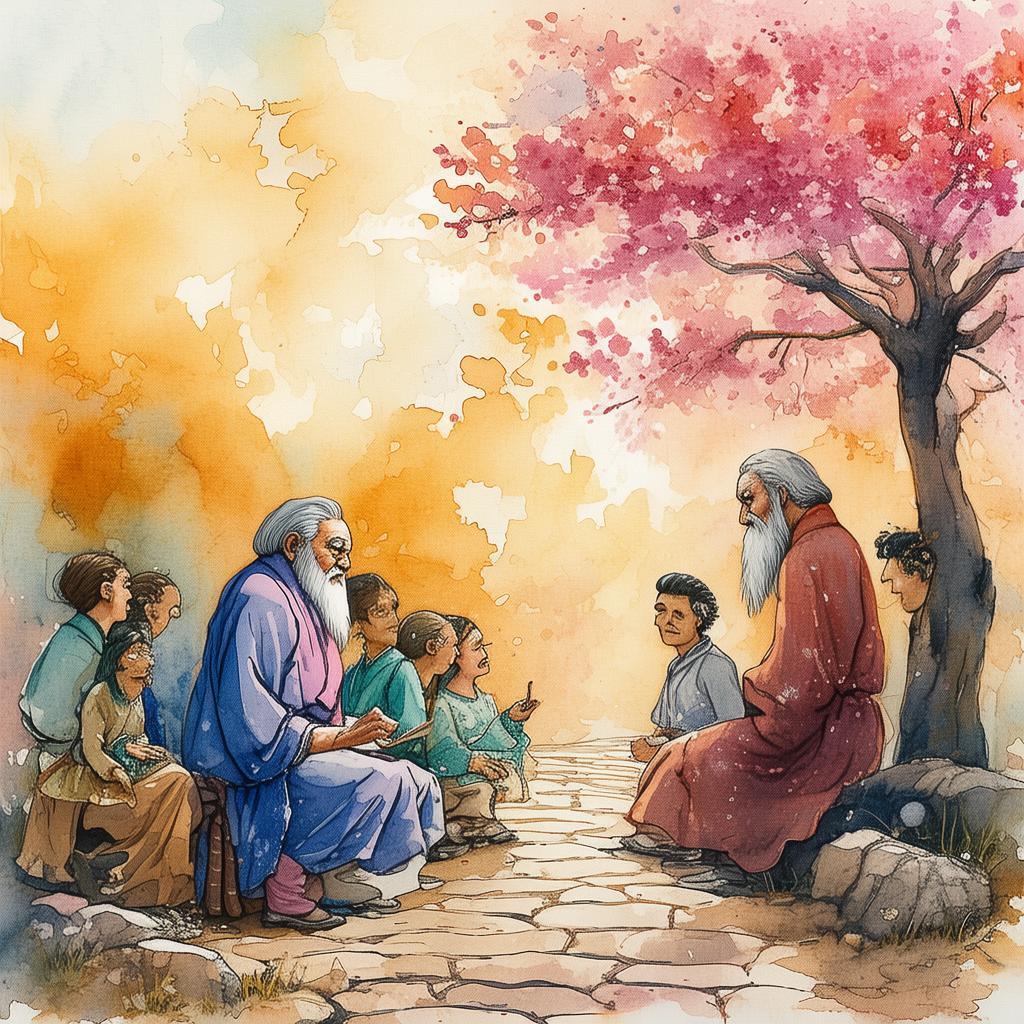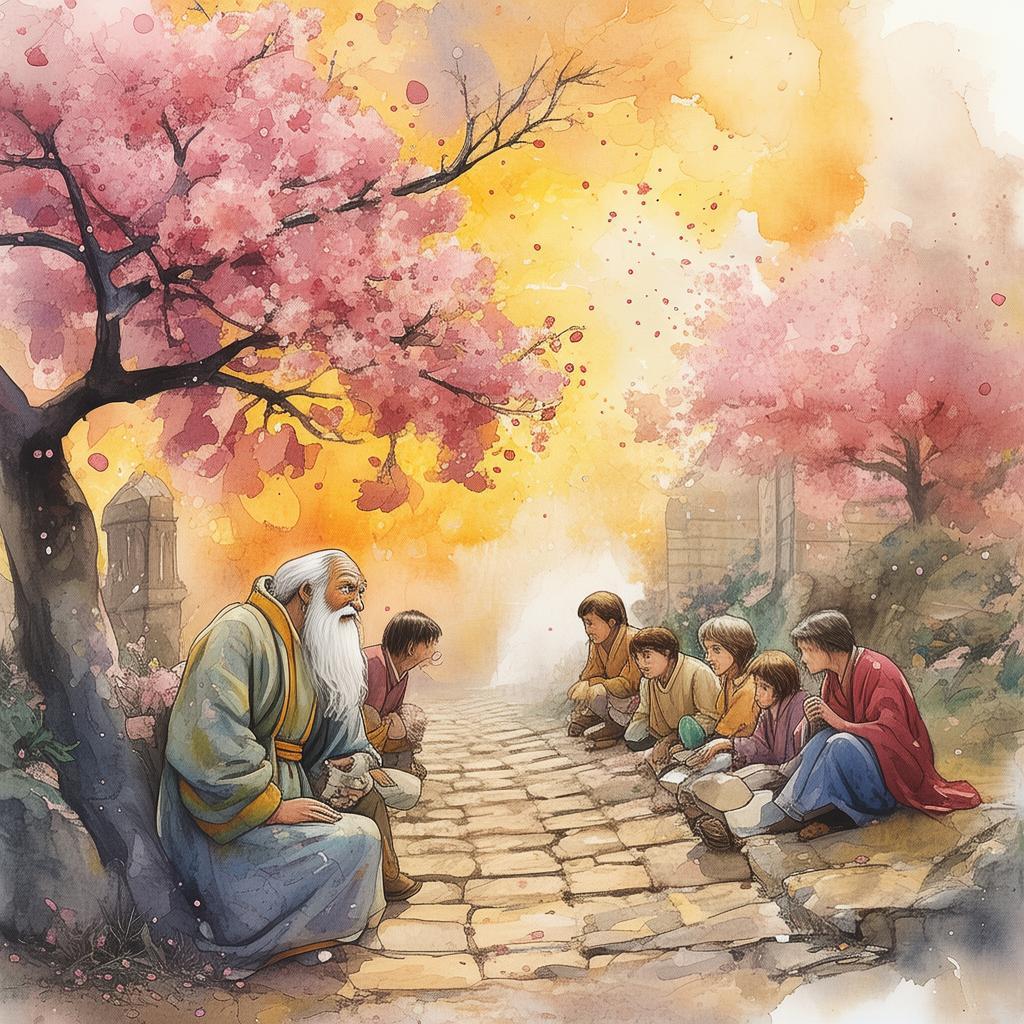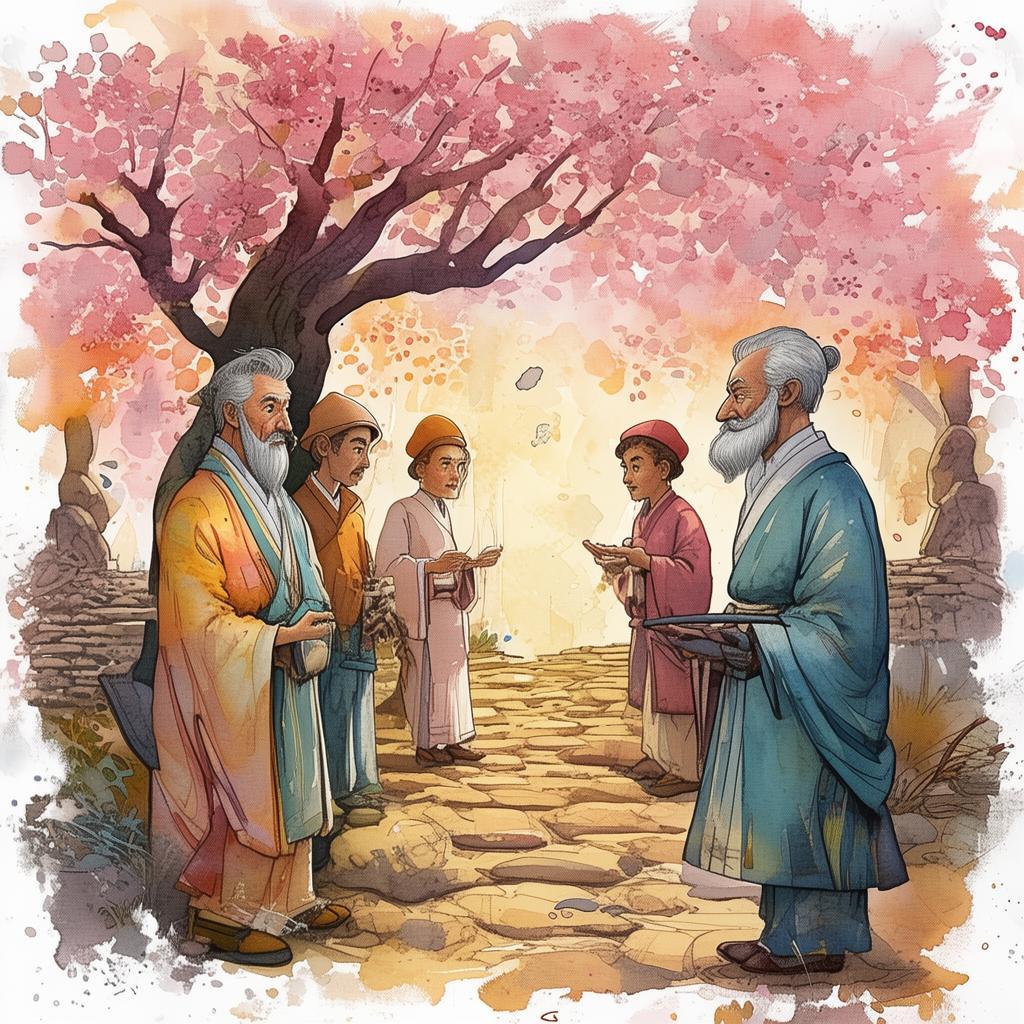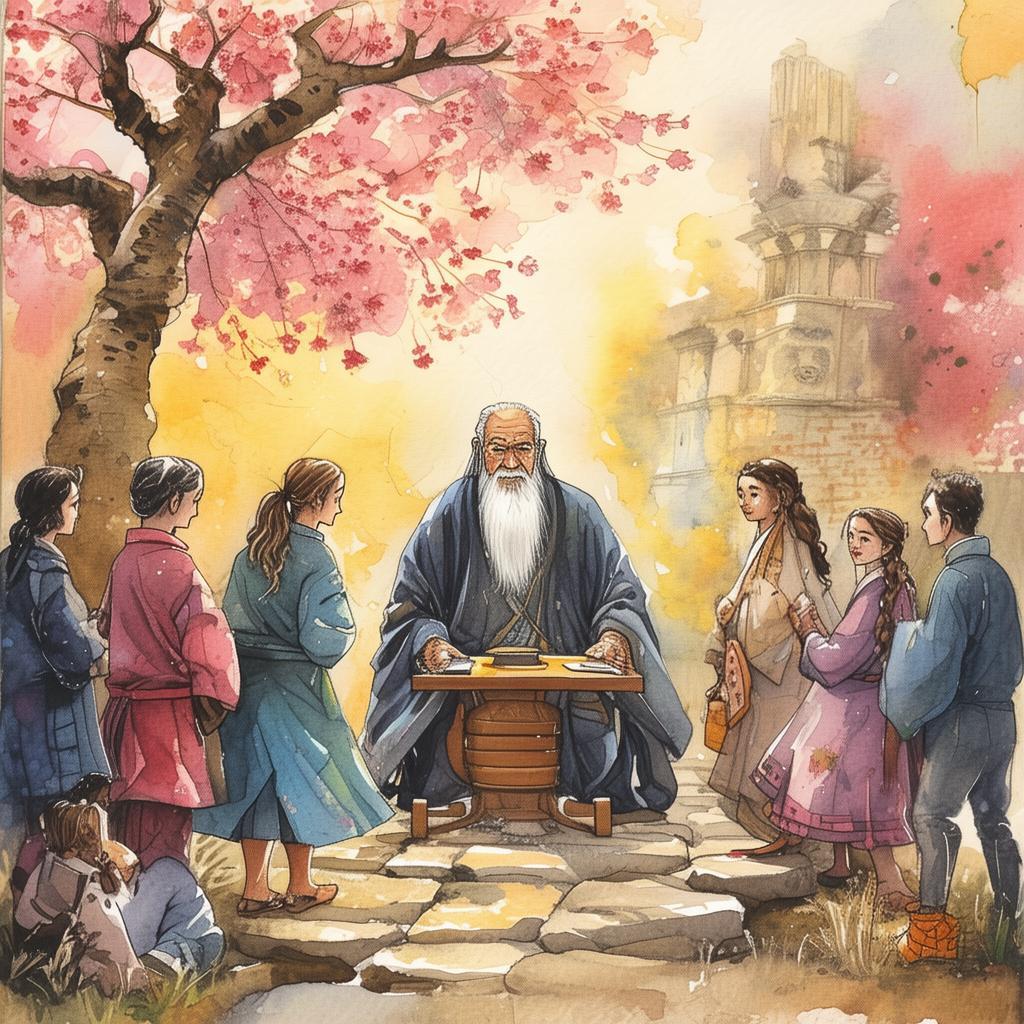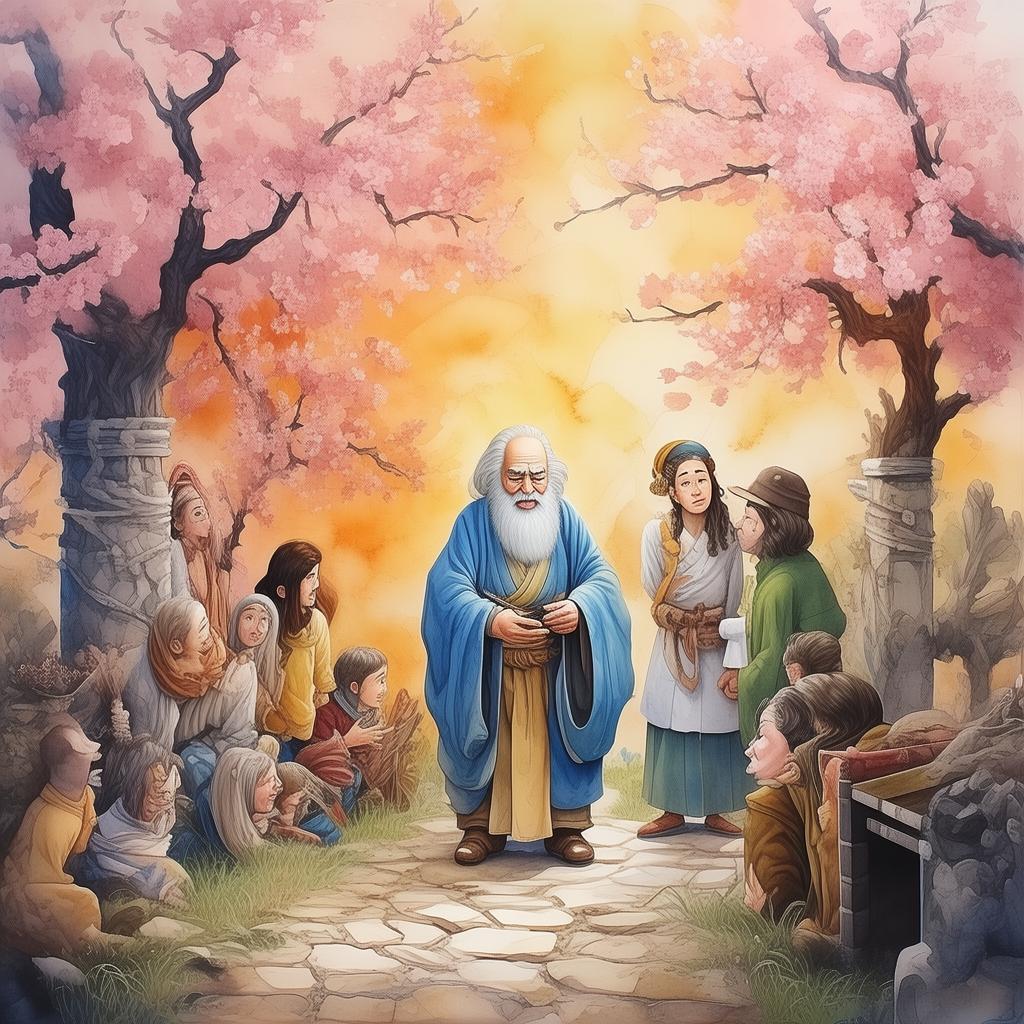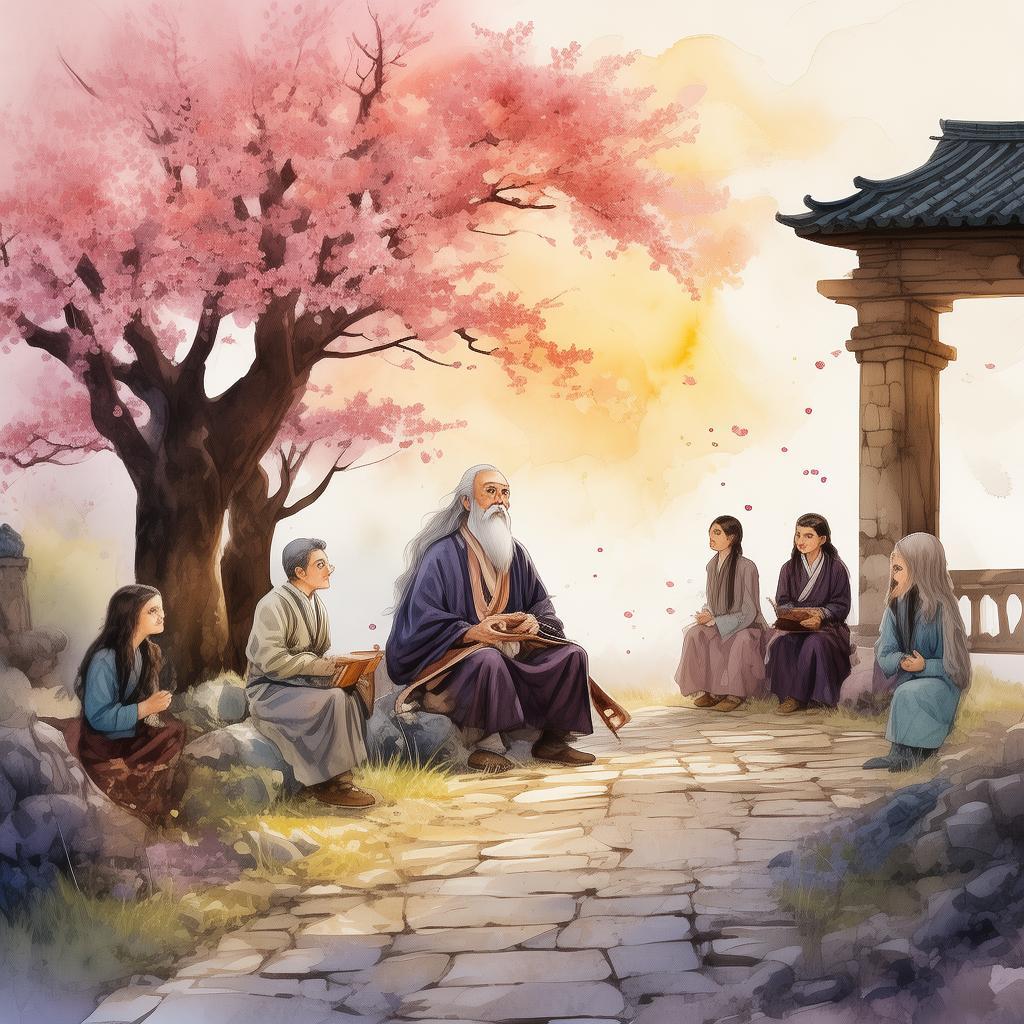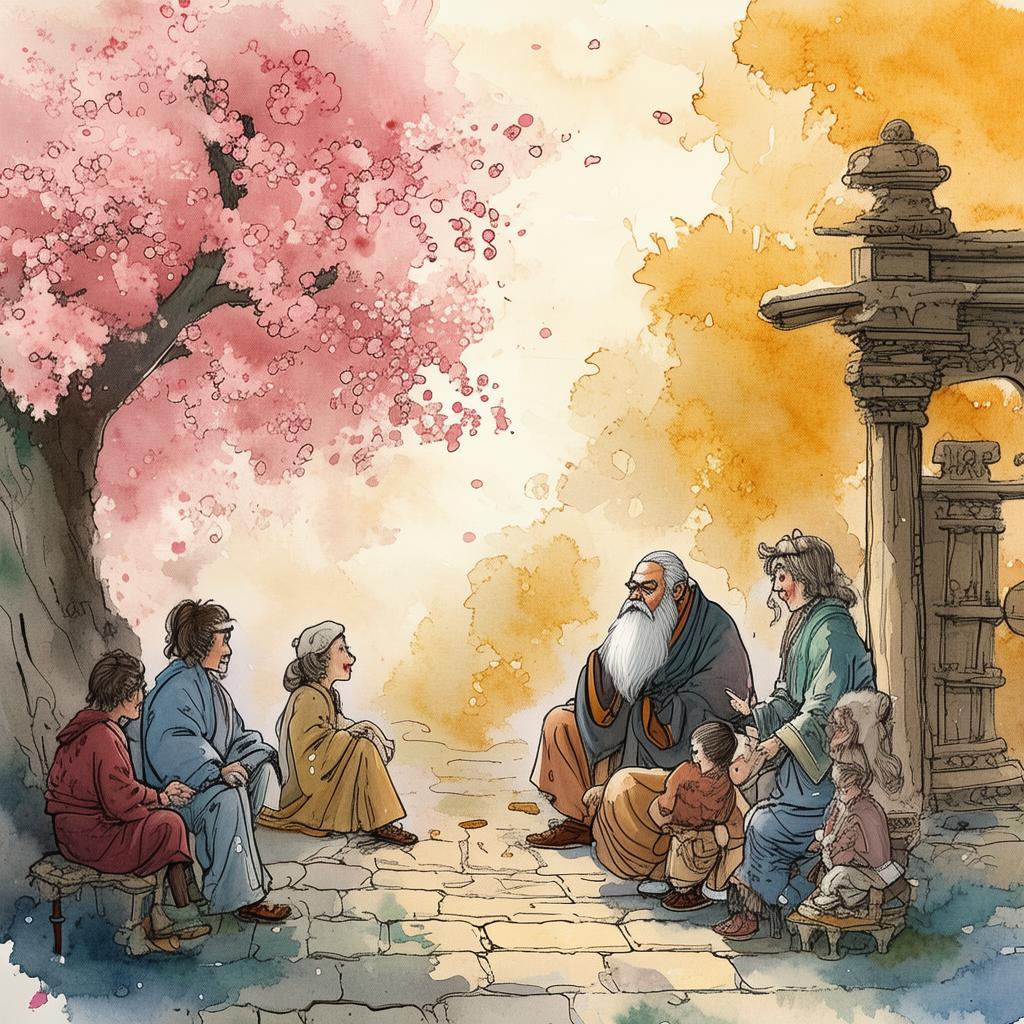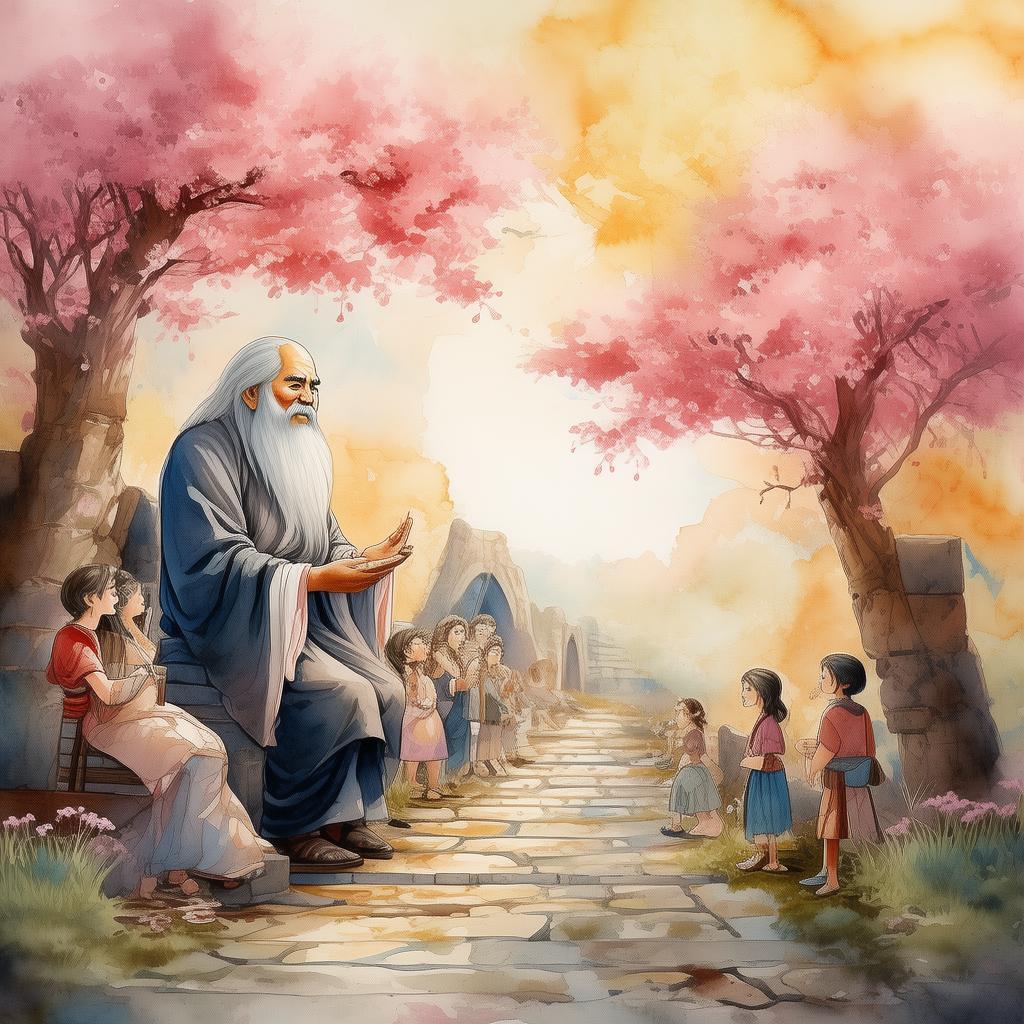Monk's Deceptive Play: The Unveiling of the Zen Master
In the heart of ancient China, where the mountains whispered secrets and the rivers sang lullabies, there stood a secluded temple. This temple was not like others; it was hidden away, known only to the most intrepid of seekers. Within its walls, a Zen master resided, known for his wisdom and the depth of his teachings. His name was Master Hua, and he had a reputation that preceded him, not just for his understanding of Zen philosophy but for his ability to see through the masks worn by those who sought enlightenment.
One crisp autumn morning, a young man named Jing arrived at the temple's gate. His journey had been long and arduous, his heart filled with a desire to understand the nature of existence and to achieve enlightenment. He was a seeker, driven by a yearning for truth, and he believed that Master Hua was the one who could guide him.
As Jing stepped through the temple gates, he was greeted by a serene monk who led him to the master's quarters. Master Hua, a figure of serene calm, welcomed Jing with a gentle smile. The seeker's eyes were wide with wonder and hope, but he was not to be disappointed.
Master Hua began his teaching with the simplicity of Zen, explaining the principles of mindfulness and the importance of letting go of attachments. Jing listened intently, his mind racing with questions and thoughts. The master's words were like a gentle breeze, clearing away the fog of ignorance that had clouded his mind.
But Master Hua was not content to leave Jing with simple teachings. He knew that true enlightenment could not be imparted through words alone. He had to test the seeker's resolve, his sincerity, and his understanding of the Zen path.
One evening, as the sun dipped below the horizon, casting long shadows across the temple grounds, Master Hua summoned Jing to his quarters. The room was dimly lit by a single candle, and the air was thick with anticipation.
"Jing," Master Hua began, his voice soft but filled with gravity, "you have been a patient student, and I have seen the depth of your quest. But enlightenment is not a gift given by another; it is a realization that comes from within. To test your understanding, I will present you with a riddle."
Jing nodded eagerly, his mind already racing with the possibilities.
"Very well," Master Hua continued. "The riddle is this: 'I have no mouth, but I make a lot of noise. I have no legs, but I can travel the longest distance. I have no hands, but I can catch anything. What am I?'"
Jing pondered the riddle for a long moment, his brow furrowed in concentration. "I think," he finally said, "it must be a shadow."
Master Hua smiled, a rare expression on his usually impassive face. "You are correct, Jing. But tell me, what does this have to do with your quest for enlightenment?"
Jing's eyes widened. "It means that enlightenment is like a shadow. It is always with us, but we often do not recognize it. It is the reflection of our true nature, just as a shadow is the reflection of the object that casts it."
Master Hua nodded, pleased with Jing's insight. "Now, I have another task for you. I will be leaving the temple for a few days, and during that time, you must find a way to understand the true nature of enlightenment without my guidance."
Jing's heart raced. "But Master, what if I don't understand? What if I fail?"
"Failure is not an option, Jing," Master Hua said firmly. "Failure is the absence of trying. Go to the forest, seek out the trees, and watch the wind. The wind will teach you about change and the impermanence of all things. It will show you that enlightenment is not static but ever-changing."
With that, Master Hua rose and left the room, leaving Jing alone with his thoughts. He knew that the journey ahead would be difficult, but he also knew that this was the path to true enlightenment.
As the days passed, Jing ventured into the surrounding forest. He watched the leaves dance in the wind, listened to the rustling of the trees, and felt the cool breeze against his skin. He felt the wind's presence, its gentle touch and its occasional fury. He realized that the wind was like the mind, ever-changing, ever-present, yet impossible to grasp.
One evening, as the sun set and the stars began to twinkle in the sky, Jing returned to the temple. Master Hua was waiting for him, his eyes reflecting the candlelight.
"Jing, tell me what you have learned," Master Hua said.
Jing took a deep breath and spoke. "I have learned that enlightenment is like the wind. It is ever-present, yet invisible to the naked eye. It is change itself, and to understand it is to understand the true nature of existence."
Master Hua smiled, a genuine smile this time. "You have understood the riddle, Jing. You have understood the nature of enlightenment."
Jing felt a sense of relief wash over him, a realization dawning within his heart. He had not only understood the riddle but also himself.
As the days went by, Jing continued his journey, his understanding of Zen philosophy deepening. He began to see the interconnectedness of all things, the impermanence of life, and the importance of living in the present moment.
One day, as he walked along a path, he encountered a young woman who had fallen and injured her leg. Without hesitation, Jing helped her to her feet and walked with her to the nearest village for medical attention.
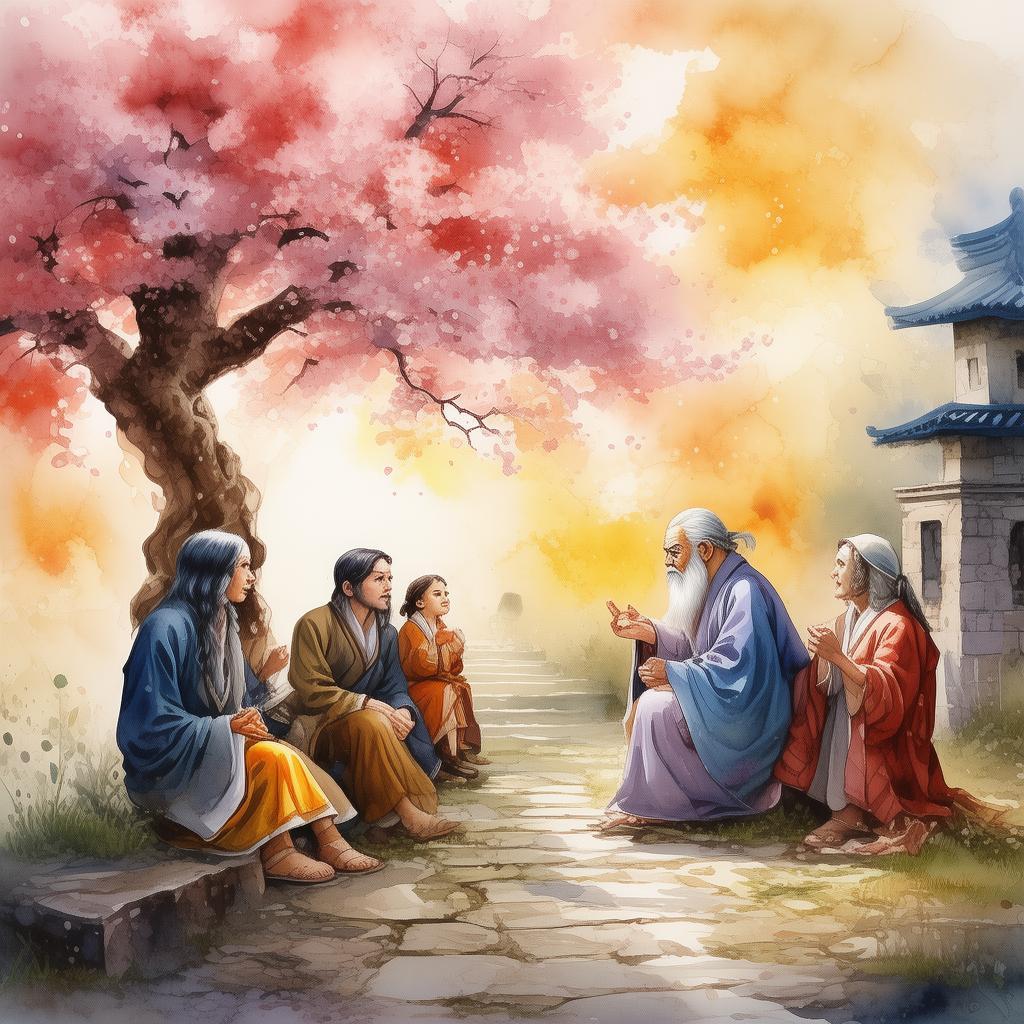
The woman, grateful for Jing's kindness, asked his name. "I am Jing," he replied. "A seeker of truth."
The woman smiled. "Seeker of truth, perhaps you have found it in the way you have treated me. True enlightenment is not about understanding philosophy but about living it in every moment."
Jing nodded, his heart filled with gratitude. He realized that the true test of enlightenment was not in understanding the words of a master but in living those words in the world.
And so, Jing continued his journey, his heart open to the world and to the teachings of Master Hua. He had not only found enlightenment but had also found his place in the world, understanding that the path to enlightenment was a journey of constant learning and growth.
The story of Jing and Master Hua spread far and wide, a testament to the power of true enlightenment and the transformative power of a deceptive ploy. The tale of the Monk's Deceptive Play became a legend, a story that taught seekers that enlightenment is not a destination but a continuous journey of self-discovery.
✨ Original Statement ✨
All articles published on this website (including but not limited to text, images, videos, and other content) are original or authorized for reposting and are protected by relevant laws. Without the explicit written permission of this website, no individual or organization may copy, modify, repost, or use the content for commercial purposes.
If you need to quote or cooperate, please contact this site for authorization. We reserve the right to pursue legal responsibility for any unauthorized use.
Hereby declared.
